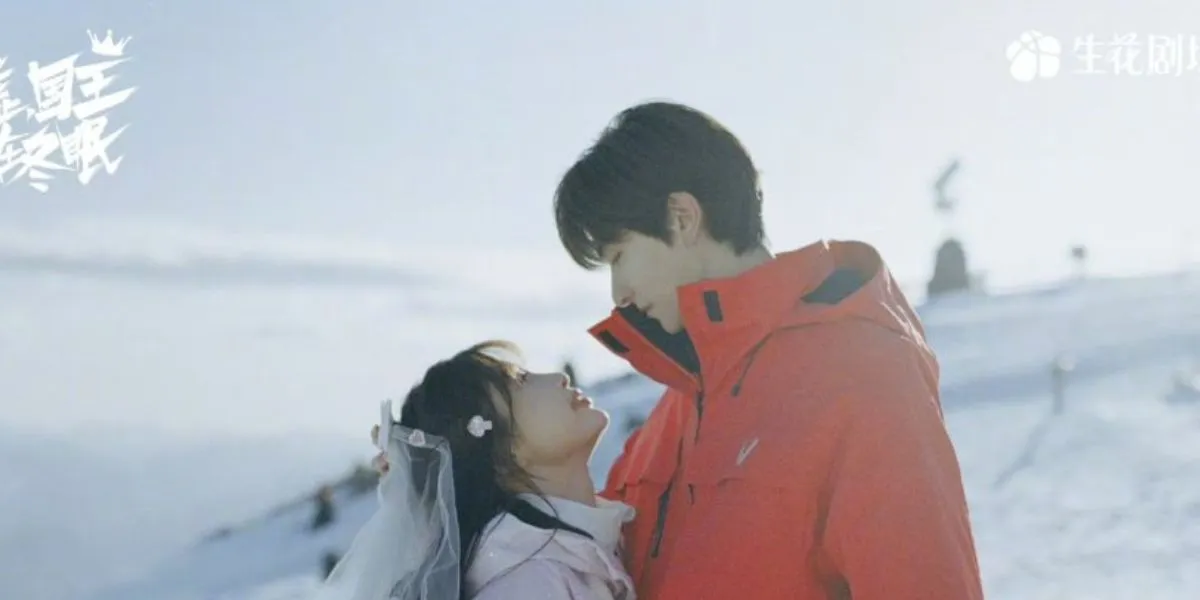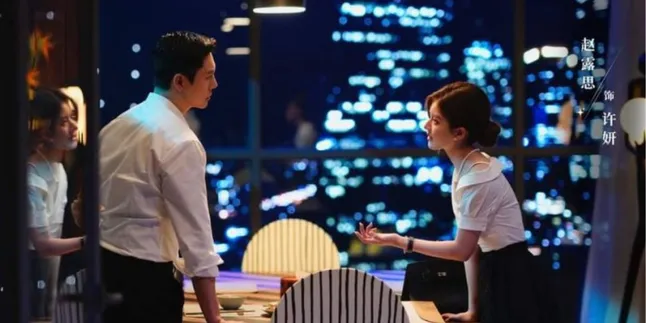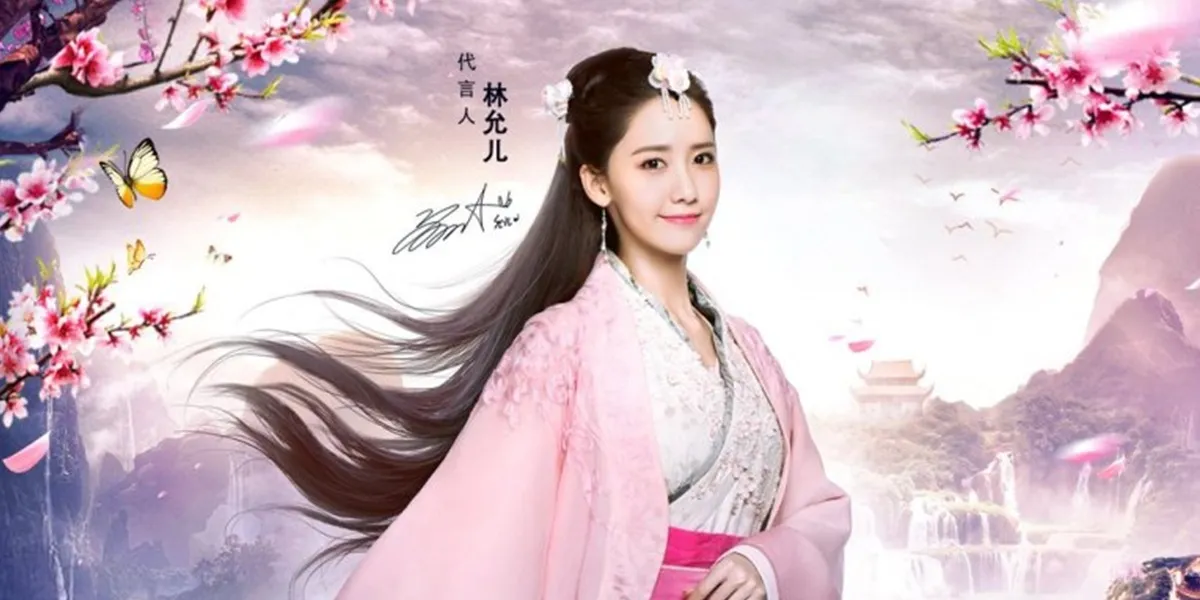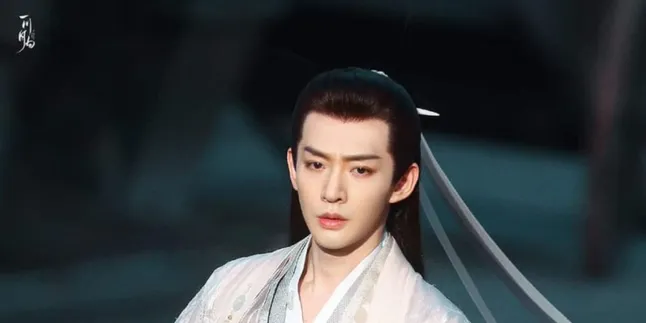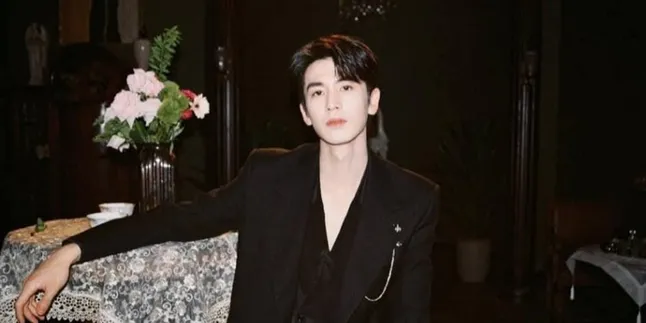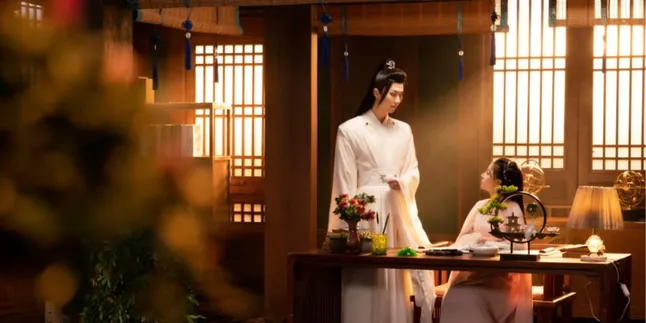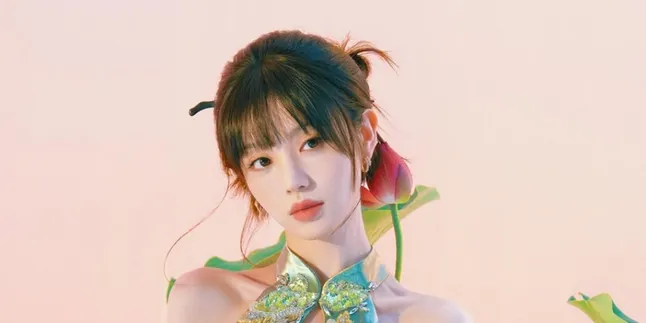Kapanlagi.com - KLovers, get ready to be enchanted by the charm of the latest Chinese drama TWELVE LETTERS that is set to stir the emotions of its viewers. Starring Zhao Yi Ran and Wang Ying Lu, this drama presents a deep romantic story along with stunning visuals.
Also known as 'THE LAST LETTER' or 'THE LAST GOODBYE', TWELVE LETTERS promises an unforgettable viewing experience. This drama takes you on an authentic and meaningful emotional journey.
So, why should the latest Chinese drama TWELVE LETTERS be on your watchlist? Let's check out 5 strong reasons behind it that will melt your heart and make it hard to move on . Let's take a look here, KLovers.
You can also check out more information at Liputan6.com.
1. A Romance Story That Is Not Just a Gimmick
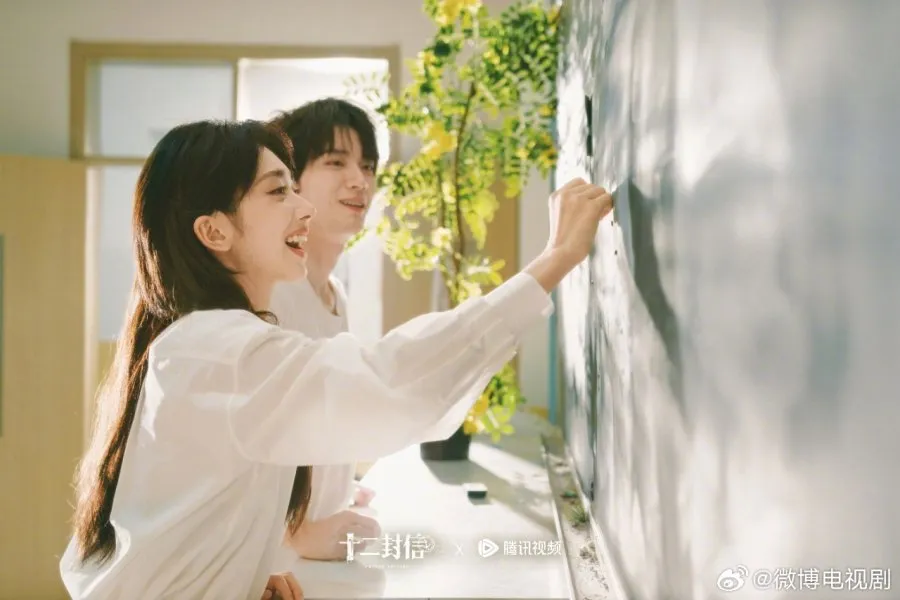
Chinese drama TWELVE LETTERS (mydramalist.com)
TWELVE LETTERS presents a romance that deeply touches the audience's heart, far from being cheap or merely a trick. The time-crossing romance premise used in this drama serves to strengthen the emotional stakes, rather than confuse the audience with an unclear plot.
This story centers on Tang Yi Xun and Ye Hai Tang, a couple separated by time and space but connected through twelve mysterious letters spanning 35 years. Their love story is built on suffering and sacrifice, showcasing a strong and admirable bond.
The latest Chinese drama TWELVE LETTERS explores memory, regret, and the small details that make two people feel like home to each other, without relying on striking paradoxes.
2. Deep Character Development Since the Past
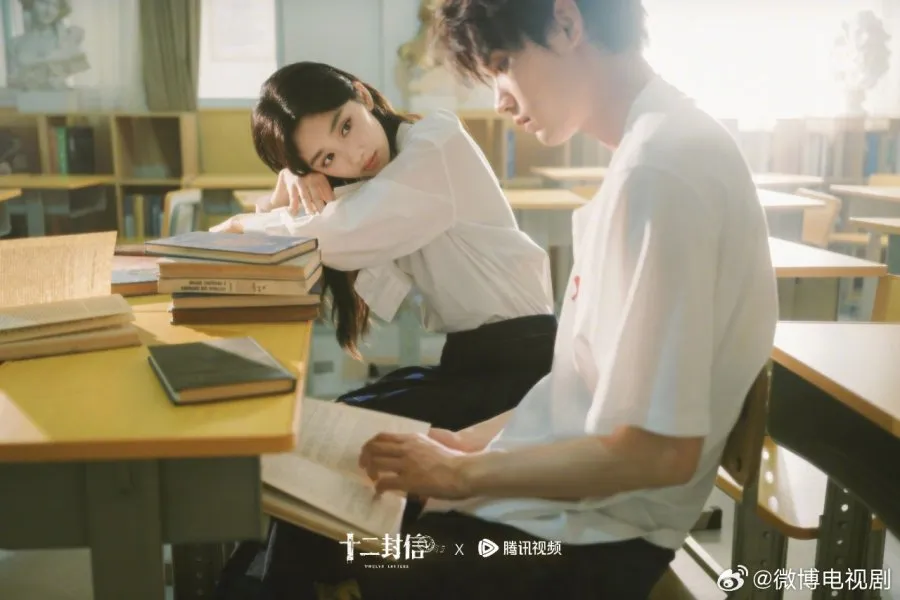
Chinese drama TWELVE LETTERS (mydramalist.com)
The latest Chinese drama TWELVE LETTERS takes viewers beyond the ordinary narrative by delving into the backgrounds and character development of the main characters from their past. The audience is introduced to the challenging lives of Ye Hai Tang and Tang Yi Xun from the very beginning, making every decision feel authentic and weighty.
For instance, Hai Tang grows up in a violent environment with a gambling-addicted father, while Yi Xun is an orphan struggling on his own. Their relationship, formed amidst difficulties, such as when Yi Xun helps Hai Tang out of suffering, shows that their bond is built on a very strong foundation.
The drama TWELVE LETTERS effectively illustrates how trauma can resonate across generations, but so can hope, with letters symbolizing resilience and love that transcends time.
3. Supporting Characters with Significant Roles
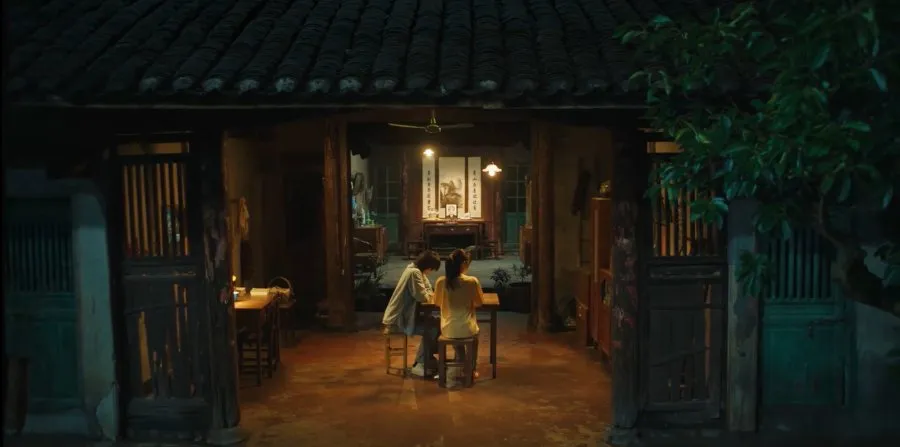
Chinese drama TWELVE LETTERS (mydramalist.com)
In the latest Chinese drama TWELVE LETTERS, supporting characters do not merely serve as complements, but play crucial roles that significantly influence the storyline. They possess distinct personalities, and despite their flaws, they remain charming and provide a strong emotional dimension to the story.
For example, Yu Nian and Shen Cheng, who are children from the future, play a major role in uncovering mysteries and connecting two timelines. The personal stories of these supporting characters closely intersect with the journey of Tang Yi Xun and Ye Hai Tang, enriching the overall narrative.
Their presence adds depth to the themes of found family, sacrifice, and the power of choice that lie at the heart of the drama TWELVE LETTERS.
4. Stunning Cinematography Brings a Small Town to Life
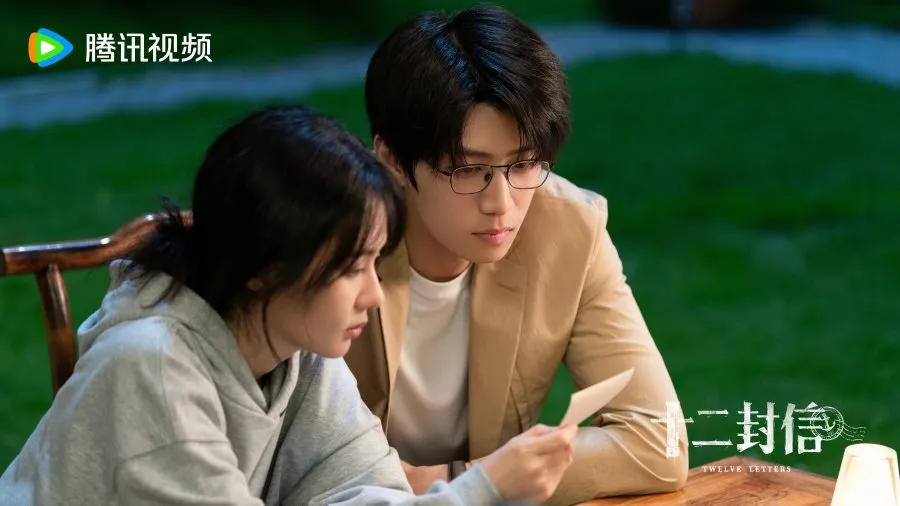
Chinese drama TWELVE LETTERS (mydramalist.com)
The latest Chinese drama TWELVE LETTERS captivates audiences with its beautiful cinematography, which not only serves as a backdrop but also as a powerful visual storyteller. These stunning visuals effectively bring to life the atmosphere of a small town and reflect the inner world of the broken characters.
The use of warm, nostalgic framing for memory-rich scenes, along with calm observational shots, stands out in building everyday intimacy among the characters. The 1990s setting enhances the drama by evoking nostalgia for the past, while scenes set in 2026 leave a lingering sense of longing through the exquisite cinematography of TWELVE LETTERS.
Director Sha Wei Qi, known for his previous works with stunning visuals, successfully creates a mysterious atmosphere thick with a sense of fantasy in this drama.
5. Acting and Chemistry of Characters That Are Very Realistic

Chinese drama TWELVE LETTERS (mydramalist.com)
The acting of Zhou Yi Ran and Wang Ying Lu in the latest Chinese drama TWELVE LETTERS has received widespread acclaim for its intensity and emotional depth, making viewers feel as if their characters truly exist. Their strong and raw performances successfully convey authentic emotions without being excessive, making the history of their characters feel credible.
The chemistry between Zhou Yi Ran and Wang Ying Lu is very real and undeniable, effectively portraying the pain, sorrow, and helplessness of their characters in a very convincing manner. Zhou Yi Ran, in particular, has been praised for being able to carry the burdens of the older character Tang Yi Xun's journey, including sorrow, regret, and the remaining hope, without needing much dialogue.
Wang Ying Lu's performance as Ye Hai Tang also shines, bringing authentic emotions to every scene and making her character feel very real in this drama TWELVE LETTERS.
6. FAQ
Q: Who are the main cast members in the Chinese drama Twelve Letters?
A: The main cast of the Chinese drama Twelve Letters includes Zhao Yi Ran and Wang Ying Lu, who play the characters Tang Yi Xun and Ye Hai Tang.
Q: What is the main genre of the Chinese drama Twelve Letters?
A: The Chinese drama Twelve Letters is a deep romance genre with elements of time travel and mystery, which will stir the emotions of the viewers.
Q: Why is the Chinese drama Twelve Letters a must-watch?
A: This drama is a must-watch because it presents an emotional romance story, deep character development, significant supporting roles, stunning cinematography, and very realistic acting and chemistry from its cast.
Want to know the latest news in the entertainment world? Check it out directly at Kapanlagi.com. If not now, when?
(kpl/mda)
Disclaimer: This translation from Bahasa Indonesia to English has been generated by Artificial Intelligence.






